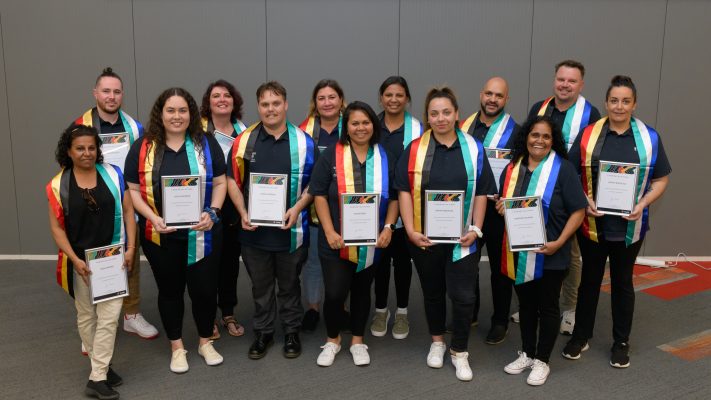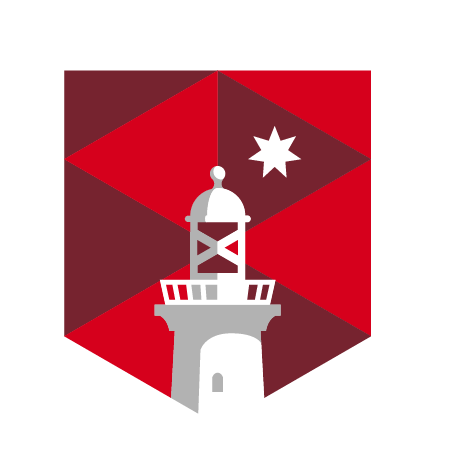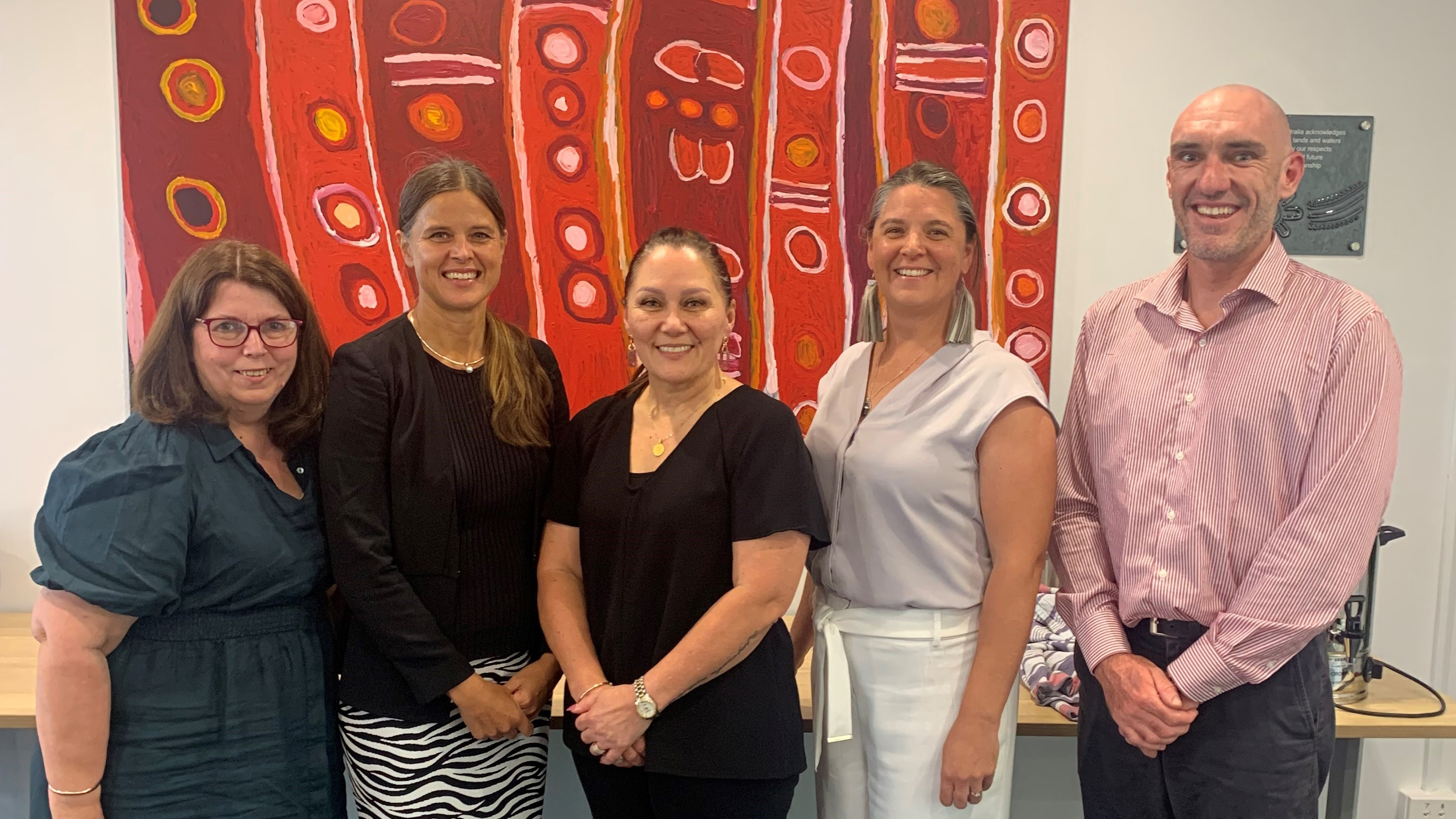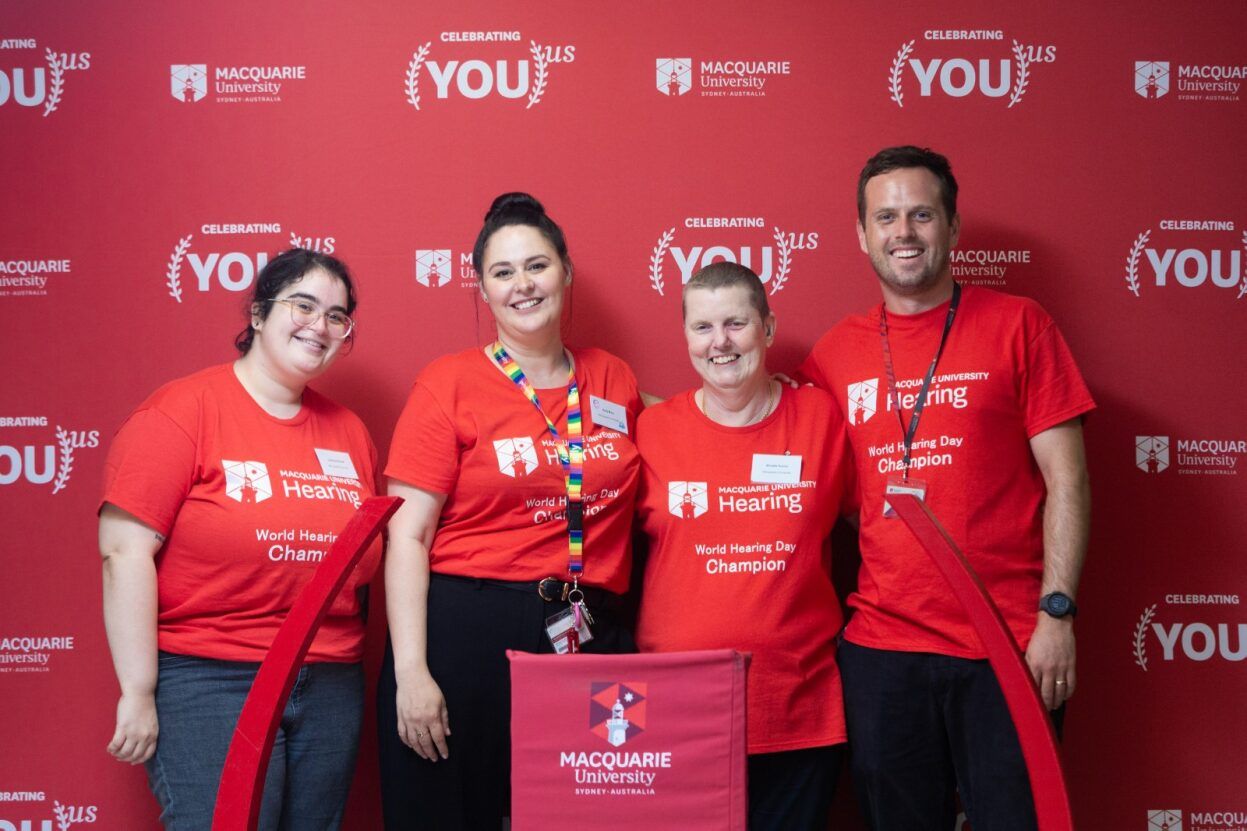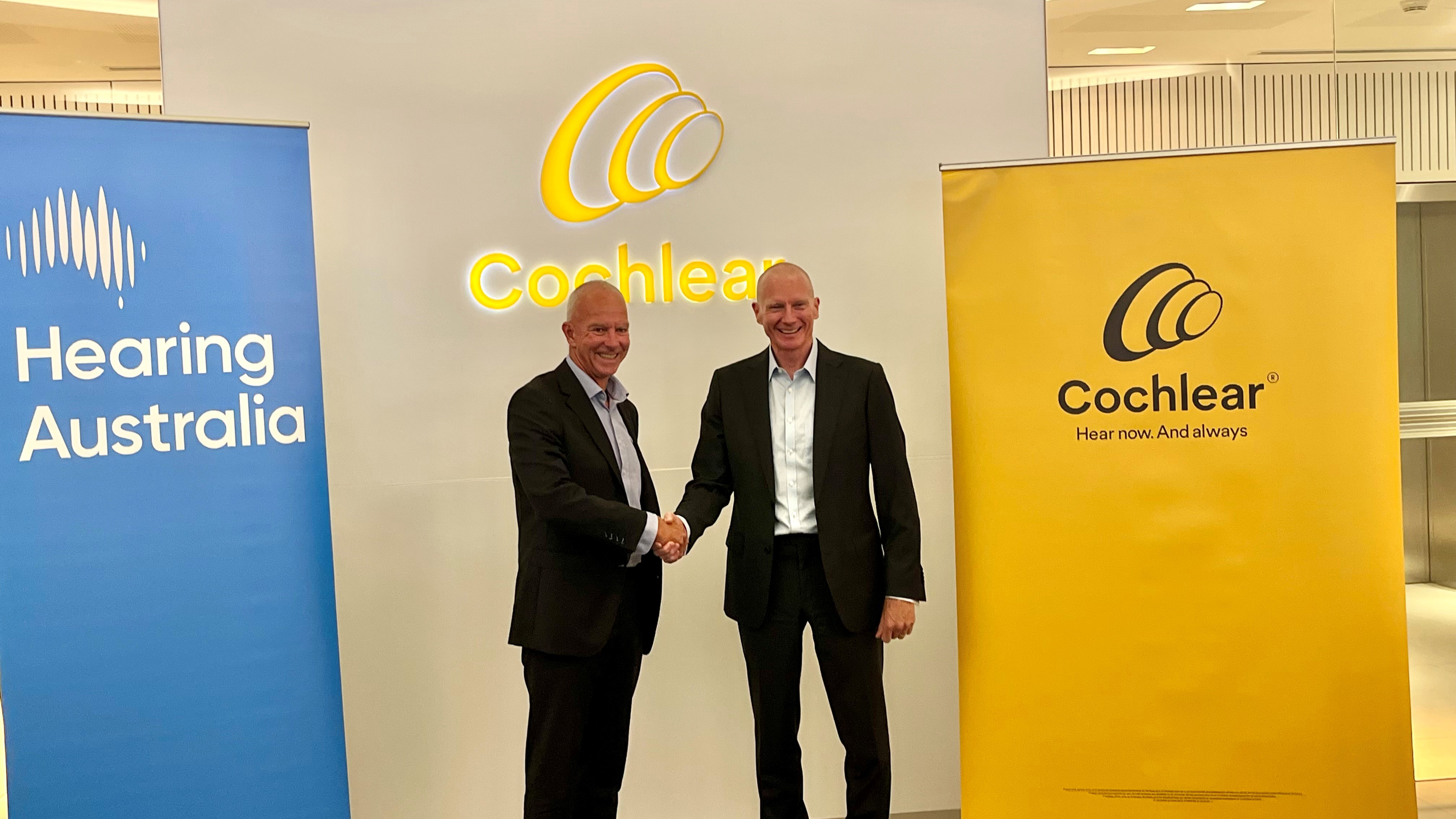 Aboriginal audiometrists graduation – November 2022
Aboriginal audiometrists graduation – November 2022
The number of Aboriginal audiometrists in Australia has increased by 750 per cent thanks to a hearing initiative led by Macquarie University.
Professor of Linguistics Catherine McMahon and her team from the Hear Centre at Macquarie University have been working with TAFE NSW and Indigenous Allied Health Australia on a project that aims to reduce the long-term impacts of middle ear disease in Aboriginal children.
“Middle ear disease is a massive public health problem in Aboriginal communities,” Professor McMahon said.
“If untreated, it can result in permanent hearing loss and associated problems including learning difficulties and loss of employment opportunities that will continue to affect the child throughout their life.
“A key concern for treating the problem is the provision of culturally safe care, and this requires a sustainable Aboriginal healthcare workforce – but until recently there were only two Aboriginal audiometrists in the whole country.”
To address this need, the University’s Aboriginal Children’s Hearing Health team has worked with TAFENSW and Aboriginal communities to co-design a culturally safe, cost-effective and scalable approach to expand the workforce.
Ten of fifteen Aboriginal healthcare workers have now completed the Diploma of Audiometry and 2 have completed the Certificate IV in Audiometric Assessment through TAFE NSW and are ready to begin work across the state. Three who were hampered by flooding and other challenges throughout their studies will complete their certification requirements by the end of the year.
The culturally safe clinical training program represents an innovative approach to audiometry training, which usually relies on students completing an industry-supported apprenticeship.
Based on the University’s Master of Clinical Audiology program, the program was designed to accelerate students’ skill development in conjunction with Aboriginal Medical Services.
“It’s so pleasing to see the students graduate and begin work,” Professor McMahon said.
“This not only provides a significant boost to the hearing health workforce, but provides a pathway for Aboriginal students to enter university.”
A second intake of Aboriginal students is currently being planned for 2023.
